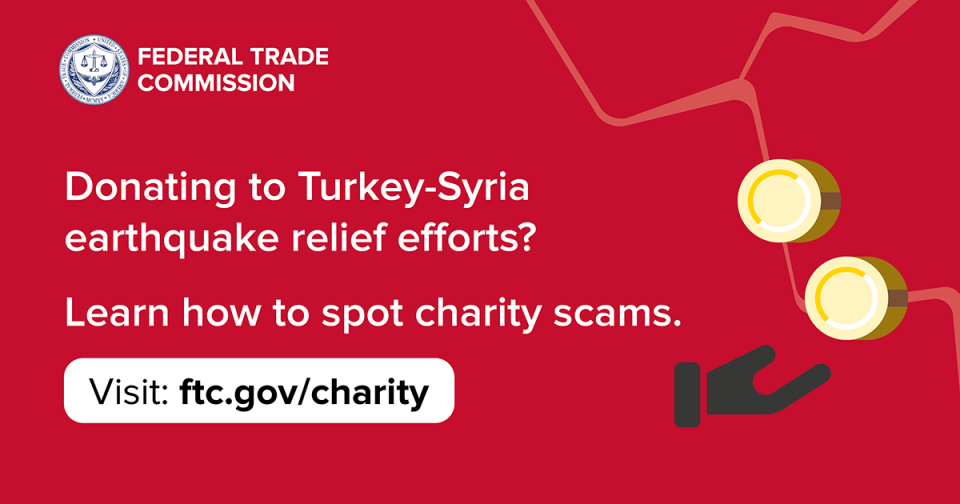The devastation in Turkey and Syria following massive earthquakes is inspiring people to help and donate. And it’s prompting scammers — like they do after every disaster — to take advantage of your generosity. Find out how to make sure your money helps people in need.
Scammers use familiar-sounding names to create fake charities, or ask you to donate in cash, by gift card, or cryptocurrency. Here’s how to spot and avoid the scams:
- Slow down. You don’t have to give immediately. Search online for the name of the charity you are interested in supporting, plus words like “review,” “scam,” or “complaint.” See if others have had good or bad experiences with the charity.
- Check what charity watchdog groups say about the organization. Don't assume that familiar-sounding names or messages posted on social media are legitimate. Donate to charities you know and trust and with a proven record of dealing with disasters.
- Ask how your money will be spent. If someone calls to ask to donate, they should be able to answer how much of your donation will go to the program you want to help, and other critical questions.
- Look at fees and timing if you’re donating through an online platform or social media. Check whether your donation will go directly to the charity and if not, how long it will take to get there, and if there are fees.
- Visit ftc.gov/charity before you open up your wallet. Learn more about giving through online platforms, and how to spot and avoid charity scams.
International disasters might involve requests for donations in multiple languages. Use ftc.gov/languages to help people you know spot scams in other languages, and then report them in English or Spanish at ReportFraud.ftc.gov.


Yesterday, while on a legitimate call I made, my phone notified me there was an incoming call from something called CMMNTY, 410-872-0826.
I don't take calls from unknown numbers.
A reverse lookup showed the area code to be from Montgomery County, MD. Further research showed it to be associated with a .gov.tr website. TR being the country code for Turkey, I suspect it was a scam with someone hoping to play on my heartstrings to get me to part with my money.
Think the safest thing to donate to local organizations, at least in my case, is all my good clothing that does not fit. Reuse and repurpose.
Hello ftc.gov webmaster, You always provide key takeaways and summaries.